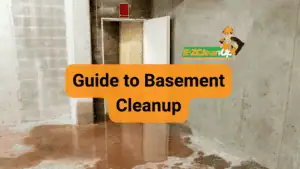When it comes to protecting your most valuable asset—your home—choosing the right contractor can make the difference between a successful project and a costly nightmare. Every year, thousands of homeowners fall victim to contractor fraud, poor workmanship, and financial losses that could have been avoided by hiring licensed and insured professionals. Understanding why licensed and insured services are essential for protecting your home isn’t just smart—it’s critical for your financial security and peace of mind.
The Growing Threat of Contractor Fraud
The statistics surrounding contractor fraud are staggering and should serve as a wake-up call for every homeowner. According to the National Insurance Crime Bureau (NICB), upwards of 10 percent or $9.3 billion is lost to post-disaster fraud annually, with much of this targeting vulnerable homeowners. Last year was a historic year for billion-dollar weather and climate disasters in the U.S. with 28 separate events costing at least $1 billion and totaling more than $93 billion in catastrophe losses.
The Better Business Bureau has consistently ranked contractors in their top concerns, with contractors in general consistently ranking in the top 10 list of consumer inquiries to the Better Business Bureau for the past five years. More alarmingly, contractors have ranked No. 1 in consumer inquiries to the Better Business Bureau in recent years, highlighting the widespread nature of problems homeowners face with unscrupulous contractors.
Unlicensed and dishonest operators try to exploit often-traumatized homeowners after storms. Contractors may demand large cash down payments, then disappear without doing work. Shoddy workmanship with substandard materials are other problems. Contractor schemes can cost homeowners thousands of dollars in uninsured bills.
Understanding Licensing: Your First Line of Defense
What Contractor Licensing Means
Contractor licensing requirements vary by state, but they all serve the same fundamental purpose: ensuring that professionals working on your home meet minimum standards of competency, financial responsibility, and ethical conduct. Georgia contractors are required to pass criminal background checks and a state licensing exam, and the exam isn’t easy, and the State Licensing Board for Residential and General Contractors oversees and governs it all.
In states like California, contractors must complete a background check, carry general liability insurance and a contractor license bond or cash deposit of $25,000, pass a trade exam, and have at least four years of experience in their selected trade within the last ten years. These rigorous requirements help ensure only qualified professionals can legally perform work on your home.
State-by-State Requirements Create Protection
Different states have varying requirements, but all aim to protect consumers. For example, effective June 1, 2024, section 8-302.1 of the Business Regulation Article of the Maryland Code requires that all Maryland home improvement contractors maintain general liability insurance in the amount of at least $500,000.
Charlotte general contractors must have a minimum of $1 million in commercial general liability insurance and list the City of Charlotte as an additional insured, demonstrating how local jurisdictions add additional protection layers.
The Cost of Using Unlicensed Contractors
The financial risks of hiring unlicensed contractors extend far beyond poor workmanship. Failing to obtain the necessary license and proof of insurance before performing work in California could result in fines, misdemeanor charges, and even jail time for the contractor—but the homeowner often bears the real cost.
Should an electrical fire occur in the finished basement area, the insurance company, during its investigation into the fires cause, will determine whether the basement work was legitimately permitted. In most cases, lack of proper permitting constitutes substantial evidence for the insurance company to decline compensation for property losses.
The Critical Importance of Insurance Coverage
General Liability Insurance: Your Property Protection
Home improvement contractors pay a median price of $90 per month, or $1,080 per year for general liability coverage, making it an affordable protection that reputable contractors readily maintain. This coverage shields businesses from third-party claims of property damage, bodily injury, and legal costs that can arise on any jobsite.
Real-world scenarios highlight why this matters: Let’s say one of your employees is helping you with a bathroom remodel. Unbeknownst to you, he doesn’t properly caulk and seal the bathtub. When the client uses the tub, water leaks through the floor to the room below, which causes significant damage to the bathroom floor and the ceiling underneath it. If this happens to you and you carry general liability insurance, your policy could cover some or all of the resulting repair bills.
Workers’ Compensation: Protecting You from Liability
Home Improvement business owners pay a median of $233 per month or $2,796 per year for workers’ comp, and this investment protects homeowners from potentially devastating financial liability.
In California, if a contractor has employees, they required to carry workers’ compensation insurance. The importance of this cannot be overstated. If a worker is injured working on your property and the contractor doesn’t have insurance, you could be financially liable to pay for injuries and rehabilitation. Your homeowner’s insurance may or may not cover those costs.
Insurance vs. Bonds: Understanding the Difference
While insurance and bonding both provide protection, they work differently. While insurance sounds similar to a surety or construction bond, it works a bit differently. For example, a bond requires repayment, whereas an insurance premium covers expenses in the event of necessary project remediation.
If the contractor you hire is bonded, you will not be on the hook if they default on the contract; and if the contractor you hire is insured, you will not be liable for any workplace accidents on your property.
Real-World Financial Impact on Homeowners
The True Cost of Contractor Problems
The financial impact of choosing the wrong contractor extends far beyond the initial project cost. Each state has a limit, some at $3,000, $8,000, or up to $25,000 for small claims court recovery, often far less than major project damages.
The maximum amount that a homeowner may recover through the Fund is the amount paid to the contractor, up to $30,000. If the total amount of all claims against a contractor equals more than $250,000, then each homeowner’s award is pro-rated based upon the total amount awarded to each claimant.
Insurance Claims and Coverage Issues
If your home is left unfinished, you may have to pay out-of-pocket to complete or re-construct the repairs. Additionally, more damage can occur as a result of poor work or subpar materials used. An insurance company will not pay for the same damage twice.
How to Verify Contractor Credentials
Step-by-Step Verification Process
Homeowners should request evidence that a service provider or contractor is bonded and insured. This isn’t optional—it’s essential for your protection.
In order to find a legitimately bonded and insured contractor, you should start by reading reviews on the Better Business Bureau website. When a business applies to be a BBB Accredited Business, they must supply proof that they meet all licensing, bonding, and insurance requirements for the jurisdictions where they do business.
What Documentation to Request
Ask to see a copy of the Certificate of Insurance, or ask for the name of the contractor’s insurance carrier and agency to verify that the contractor has insurance. Legitimate contractors will readily provide this information.
Any legitimate contractor will be happy to provide you with this information before commencing work on a job for you. If a contractor hesitates or refuses to provide proof of licensing and insurance, consider it a major red flag.
Red Flags to Avoid
High-Pressure Tactics and Upfront Payments
Homeowners should be wary of high pressure sales tactics and should seek multiple bids. Always get a signed contract and beware of upfront payments.
Be wary of anyone who approaches you unsolicited or says they can perform home repairs at a discount with leftover supplies from another job. Additionally, consider it a warning sign if a contractor uses high pressure sales tactics. A reputable contractor will recognize that you will need time to consider your options and needs.
Door-to-Door Contractors
Contractor fraud scams often start with an unsolicited visit from a contractor who claims to want to help victims rebuild. Dishonest contractors also frequently use flyers to advertise their services.
Oftentimes, these fraudulent, possibly unlicensed, contractors target neighborhoods and take advantage of multiple homeowners. The contractor may complete the roof of one home to use as an example or proof to other homeowners.
The Business Benefits of Hiring Licensed and Insured Contractors
Market Competition and Quality
More clients than ever—including property owners, municipalities, and general contractors—are requiring proof of contractor liability insurance in California before awarding contracts. This trend reflects growing awareness among property owners about the importance of proper protection.
Generally, the most reputable and skilled contractors are bonded and insured and, therefore, most likely to complete the project satisfactorily and without incident.
Professional Standards and Accountability
Licensed contractors must maintain professional standards to keep their licenses active. Contractor license bonds primarily protect the public’s interest – they guarantee contractors will perform according to the terms of their license and sometimes this can even guarantee the contractor’s work performance. The bond guarantee varies by the government agency that’s requiring the bond.
Recovery Options When Things Go Wrong
State Recovery Funds and Legal Protections
Many states maintain recovery funds specifically to help homeowners who suffer losses from licensed contractors. Contractor Recovery Fund or Homeowner’s Recovery Fund: These state-run groups compensate homeowners who suffer a loss from fraudulent activity by a contractor.
Bonding Company Protection
Construction surety bonds protect project owners, suppliers, and laborers against financial loss. It is a legally binding agreement that you (a construction company or general contractor) will carry out a job lawfully, ethically, and as per the terms of the contract.
Bonds also protect you from losses if the contractor cannot execute the contract because of financial issues or a lack of qualified workers. Because the contractor must pay the surety for any losses, the contractor is less likely to default on the contract due to the tremendous risk to their business.
Industry Trends and Future Outlook
Technology and Risk Management
The larger and more sophisticated contractors are investing in technology to mitigate loss, and they are relying on data analytics and key performance indicators to better drive performance outcomes and create a more favorable risk profile. Contractors are leveraging all resources and leaning on broker/insurer partners and peer groups for industry trends and pitfalls.
Market Stabilization
The market corrections of the past few years have contributed to improved insurer-combined loss ratios and a more stabilized rate environment. Though the construction industry continues to struggle with labor shortages, supply chain issues, increased claim costs and uncertainty around interest rates, the market corrections of the past few years have contributed to improved insurer combined loss ratios and a more stabilized rate environment.
Making the Right Choice: Your Action Plan
Research and Verification Steps
- Check licensing status through your state’s licensing board
- Verify insurance coverage by requesting certificates and contacting insurers
- Research reputation through BBB, online reviews, and local references
- Get multiple bids from licensed and insured contractors only
- Review contracts carefully before signing
Get at least three written, itemized estimates or bids on repairs or remodels. Have your insurance company evaluate any damage to your home before arranging repairs to ensure that the work will be covered under your policy.
Questions to Ask Potential Contractors
- Can you provide proof of current licensing?
- Will you provide certificates of insurance for general liability and workers’ compensation?
- Can you provide local references from recent projects?
- Are you bonded, and can you explain what that means for my protection?
- Will you obtain all necessary permits for this work?
Conclusion: Investment in Protection
Choosing licensed and insured contractors isn’t just about compliance—it’s about protecting your home, your finances, and your peace of mind. While hiring a contractor who is fully bonded and insured may seem like a lot of trouble, and it can sometimes be more expensive, the alternative risks far outweigh any additional costs.
We’ve all seen the stories in the news about home and business owners – often people just like you – who have lost enormous amounts of money to contractors who did not have the proper insurance coverages, performed shoddy work on construction projects, or were simply flat-out dishonest and ran off with the customer’s money without ever finishing the job.
The statistics are clear: contractor fraud costs Americans billions annually, with homeowners bearing the brunt of financial losses. By insisting on licensed and insured services, you’re not just hiring a contractor—you’re investing in comprehensive protection for your most valuable asset.
Choosing a bonded and insured contractor near you provides you with the most protection possible. Don’t let your home improvement dreams become financial nightmares. Make the smart choice, and always hire licensed and insured professionals for your home projects.
Remember: Although an unlicensed operator may give you a low bid, the risks of possible financial and legal consequences outweigh any benefits a lower bid may seem to offer. Your home deserves nothing less than professional, protected service.
References
- WTW Insurance Marketplace Realities 2024 Spring Update – Construction
- Simply Business Home Improvement Contractor Insurance Cost Guide
- National Insurance Crime Bureau – Contractor Fraud Costs Americans Billions Every Year
- Insurance Fraud Organization – Fraud Stats
- Maryland Home Improvement Commission (MHIC) – Division of Occupational and Professional Licensing













